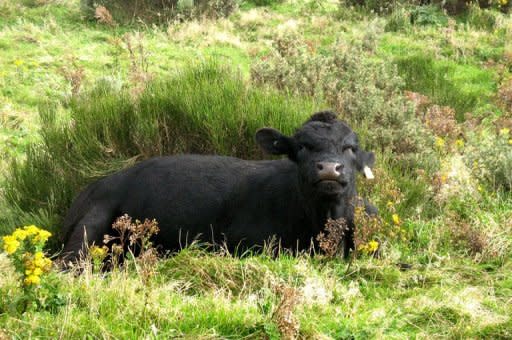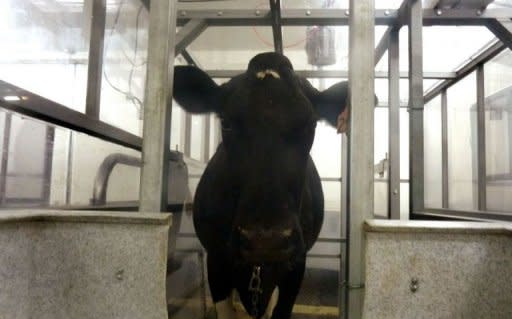China purchase sparks land grab fears in N. Zealand
The sale of a bankrupt dairy farm group to a Chinese firm has sparked fears of a foreign land grab in New Zealand, as well as revealing what critics label a "dark side" of the national psyche. After a review process lasting more than 12 months, the government last month approved the sale of the 16-property Crafar Farms group to China's Shanghai Pengxin in a deal reportedly worth NZ$210 million ($170 million). On the face of it, the sale was a minor component of the burgeoning NZ$10 billion a year trade relationship between China and New Zealand, which in 2008 became the first developed nation to sign a free trade agreement with Beijing. But the approval sparked intense controversy in the farm-reliant country, the world biggest exporter of dairy products, with Prime Minister John Key's conservative government accused of selling out to foreign interests. The main opposition Labour Party labelled the decision "a massive kick in the guts" for New Zealand farmers, while Winston Peters of the populist New Zealand First Party branded it "economic betrayal". "The whole sales process has been a shonky, jack-up job between Prime Minister John Key, his ministers, and the communist government of China," Peters said. Opinion polls have showed overwhelming public opposition to the deal, which the Greens say is part of a land grab by foreign investors intent on snapping up productive farmland to shore up security of their own food supplies. "Food producing farmland with access to water is an increasingly valuable resource in a finite world with growing population and declining water resources," Greens co-leader Russel Norman said. "Realising this, the Chinese government has embarked upon a strategy encouraging Chinese companies to purchase farmland throughout the world," he added, saying it would see profits generated in New Zealand going offshore. Key, who has previously expressed concern about New Zealanders becoming "tenants in their own land", has supported the sale, saying New Zealand cannot turn down investors simply because they are Chinese. He said that all foreign investors, regardless of where they came from, had to be treated equally under the law. "So if this deal is a yes for an Australian buyer or a yes for an American buyer then it should be a yes for a Chinese buyer," he said. "In the end I think it is a pretty good deal for all parties." Key said there was no evidence the Crafar sale would open the way for a flood of rural sales to foreign groups, arguing less than two percent of New Zealand farmland was owned by foreigners, mostly from Europe or America. "I don't think that's actually happening at this point, it's more a perception than a reality," he said. With the government hoping to double two-way trade with China to NZ$20 billion by 2015, the foreign affairs ministry warned during the Crafar consultation process that rejecting the deal could have serious implications. Land Information Minister Maurice Williamson has described opposition to the sale as "bordering on racism", while the New Zealand Institute of Economic Research attributes the backlash to xenophobia and party politics. It's an assessment University of Otago politics lecturer Bryce Edwards reluctantly agreed with, saying the ethnicity of the group buying the farms was "the elephant in the room" in the debate. "Obviously there's a lot of genuine non-racist criticism but... I think it's slightly alarming," he said. "New Zealand's dark side is coming out, our discomfort with foreigners and Asian investors in particular. "It's not something I've seen in my lifetime. Normally it's been about how much goods and services we're buying from Asia, now it's moved on to a different level." A spokesman for the Chinese embassy in Wellington, Cheng Lei, was reluctant to address the Crafar issue directly but said New Zealanders should be pleased to welcome foreign investment. "I think Kiwis should understand that it is a positive signal," he told reporters after the sale was announced. "It showcases foreign countries confidence in your country, in your system, in your people and you should be happy about that."



